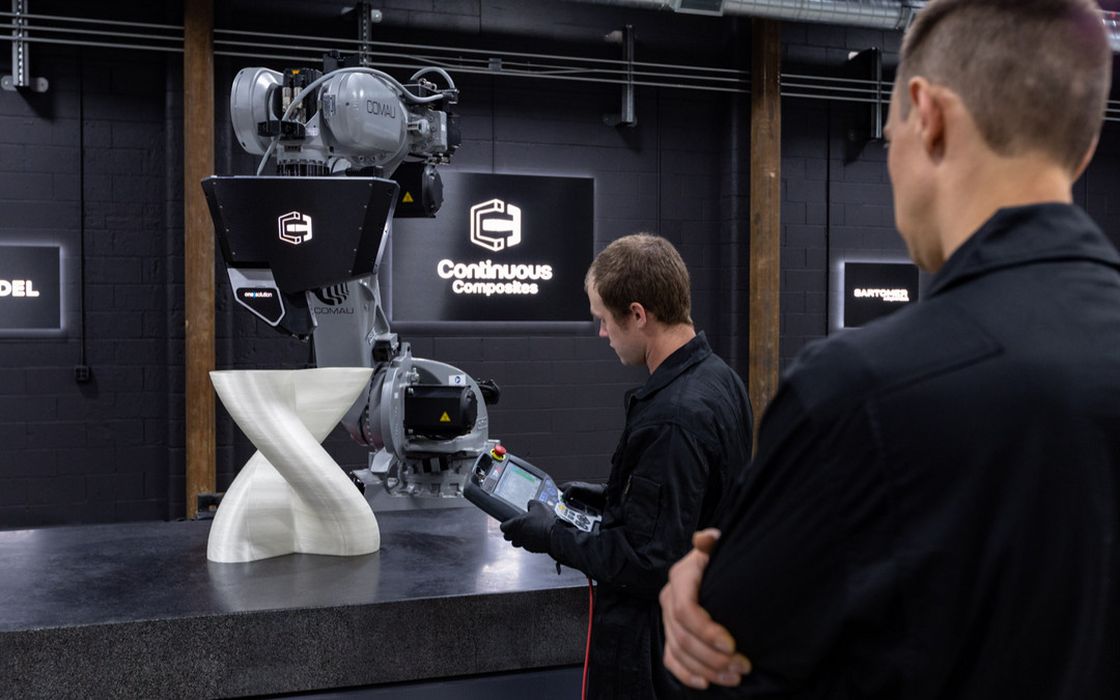
There are many companies developing additive manufacturing technology for mainstream production. Here’s 10 emerging companies that could have the next big thing.
There have been many developments in additive manufacturing over the past several years and market research firm ResearchAndMarkets.com has compiled a list of 10 up-and-coming additive OEMs that could disrupt the 3D printing equipment market. Of course, there are many other companies pushing the additive boundaries, but here’s a rundown of a few to keep an eye on:
3DM (Rosh Ha’ayin, Israel)
3DM’s SLS printhead technology is based on a parallel laser beams that accelerate printing speed and throughput and increase printing resolution. The core technology is a semiconductor laser for 3D printing that works with any thermoplastic material. The laser is a few millimeters in size and delivers high-power at relatively low-cost, which means you can combine up to six lasers into one beam for increased beam power and faster printing speed. The laser’s wavelength emission can be tuned to perfectly fit the optimal melting behavior of all thermoplastic materials, opening it to virtually unlimited market applications.
Continuous Composites (Coeur d’Alene, Idaho)
The company’s Continuous Fiber 3D (CF3D) Printing is a fully automated solution with a continuous dry fiber that is impregnated in situ with a tailorable, snap curing thermosetting resin delivered by the end effector. The end effector’s motion platform driven by proprietary software. CF3D end effectors handle the material from start to finish. After the end effectors impregnate the fibers in situ, they cure the fiber and resin combination instantly upon deposition. CF3D is configurable and scalable for many potential applications.
Fabric8Labs (San Diego, California)
Developing Electrochemical Additive Manufacturing (ECAM), a room-temperature 3D metal printing technology for complex, dense metal parts without thermal processing. ECAM builds rapidly at the atomic level from a water-based feedstock containing dissolved metal ions. The electrochemical approach produces micron-scale feature resolution and complex internal features. It uses high-purity materials and can be scaled for mass manufacturing. It can print onto temperature sensitive substrates such as PCBs, silicon or existing metal components. Th company also says it’s more sustainable, using recyclable metal feedstocks and low energy consumption resulting in a 90 percent reduction in greenhouse gas emissions relative to alternative additive technologies and traditional manufacturing.
FormAlloy (Spring Valley, California)
The company’s Directed Energy Deposition (DED) process can produce features that can’t be achieved with conventional manufacturing methods with exceptional in-process monitoring and control features. The X-Series and L-Series DED systems feature closed-loop control, variable-wavelength lasers and powder feeders for gradient or bi-metallic structures. FormAlloy also makes specialty hardware that can be integrated with existing robotic or production lines to 3D print, clad and repair.
Fortify (Boston)
Fortify’s patented DCM (Digital Composite Manufacturing) platform introduces functional additives to photopolymers. By combining material science with high-performance mixing, magnetics and polymer physics, the tech produces custom microstructures in high-resolution 3D-printed for applications ranging from injection mold tooling to high-performance end-use parts with unique mechanical and electromagnetic properties.
MELD Manufacturing (Christiansburg, Virginia)
MELD Manufacturing Corp. develops 3D printing and hybrid machines for printing metal components using its “MELD” process, which prints metal parts in the solid state without melting the metal. Applications include additive manufacturing, coating, component repair, metal joining and custom metal alloy and metal matrix composite billet and part fabrication. Because of the solid-state nature of the process, it produces materials and parts with low residual stresses and full density with significantly lower energy requirements than more conventional fusion-based processes. Its parts are not susceptible to porosity, hot-cracking or other common problems that plague melt-based technologies and don’t need follow-on processes such as hot isostatic pressing (HIP) or sintering to improve the quality of the deposited material. MELD is not restricted to small powder beds or costly vacuum systems. The MELD process is an open-atmosphere process and is not sensitive to the operating environment or material surface condition and is not limited in the metal alloys that can be deposited.
Trio Labs (Morrisville North Carolina)
Trio uses its proprietary processes and tools to fabricate precision metal parts for the medical industry, scaling from prototyping though high-volume manufacturing. Its Resin Infused Powder Lithography (RIPL) process reduces costs and manufacturing times for existing products and enables wholly new solutions in a wide range of medical device markets. Previously impossible devices and components are made routine by RIPL, including less invasive higher precision surgical tools, miniaturized infusion pumps, microneedle arrays, drug delivery devices and orthopedic implants.
Read the rest of this story at ENGINEERING.com
